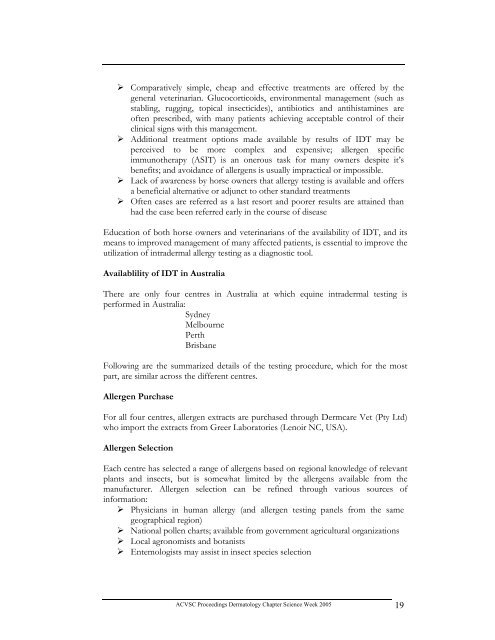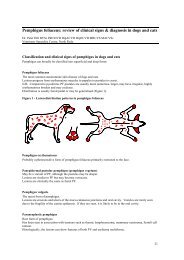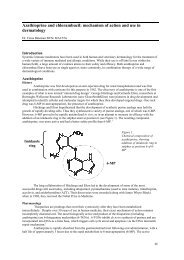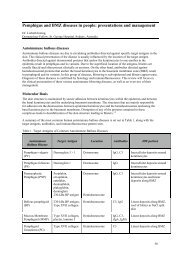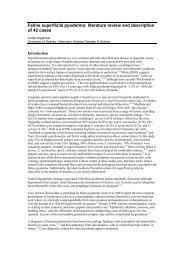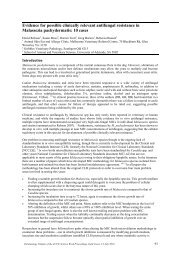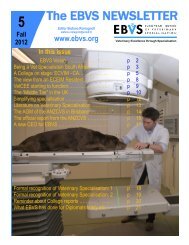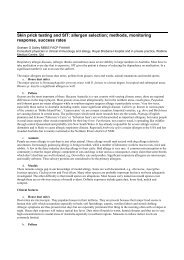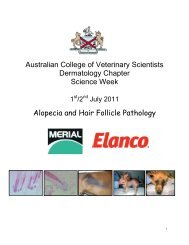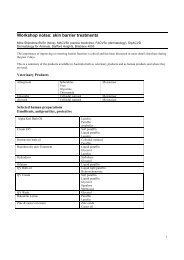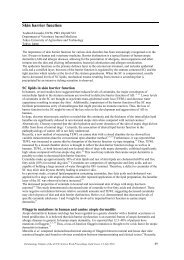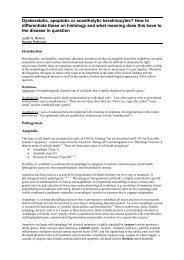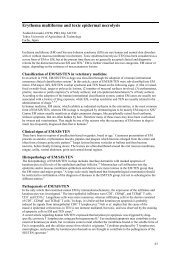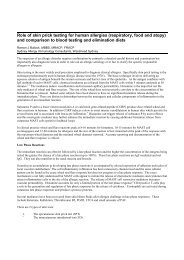here - Australian College of Veterinary Scientists
here - Australian College of Veterinary Scientists
here - Australian College of Veterinary Scientists
You also want an ePaper? Increase the reach of your titles
YUMPU automatically turns print PDFs into web optimized ePapers that Google loves.
Comparatively simple, cheap and effective treatments are <strong>of</strong>fered by the<br />
general veterinarian. Glucocorticoids, environmental management (such as<br />
stabling, rugging, topical insecticides), antibiotics and antihistamines are<br />
<strong>of</strong>ten prescribed, with many patients achieving acceptable control <strong>of</strong> their<br />
clinical signs with this management.<br />
Additional treatment options made available by results <strong>of</strong> IDT may be<br />
perceived to be more complex and expensive; allergen specific<br />
immunotherapy (ASIT) is an onerous task for many owners despite it’s<br />
benefits; and avoidance <strong>of</strong> allergens is usually impractical or impossible.<br />
Lack <strong>of</strong> awareness by horse owners that allergy testing is available and <strong>of</strong>fers<br />
a beneficial alternative or adjunct to other standard treatments<br />
Often cases are referred as a last resort and poorer results are attained than<br />
had the case been referred early in the course <strong>of</strong> disease<br />
Education <strong>of</strong> both horse owners and veterinarians <strong>of</strong> the availability <strong>of</strong> IDT, and its<br />
means to improved management <strong>of</strong> many affected patients, is essential to improve the<br />
utilization <strong>of</strong> intradermal allergy testing as a diagnostic tool.<br />
Availablility <strong>of</strong> IDT in Australia<br />
T<strong>here</strong> are only four centres in Australia at which equine intradermal testing is<br />
performed in Australia:<br />
Sydney<br />
Melbourne<br />
Perth<br />
Brisbane<br />
Following are the summarized details <strong>of</strong> the testing procedure, which for the most<br />
part, are similar across the different centres.<br />
Allergen Purchase<br />
For all four centres, allergen extracts are purchased through Dermcare Vet (Pty Ltd)<br />
who import the extracts from Greer Laboratories (Lenoir NC, USA).<br />
Allergen Selection<br />
Each centre has selected a range <strong>of</strong> allergens based on regional knowledge <strong>of</strong> relevant<br />
plants and insects, but is somewhat limited by the allergens available from the<br />
manufacturer. Allergen selection can be refined through various sources <strong>of</strong><br />
information:<br />
Physicians in human allergy (and allergen testing panels from the same<br />
geographical region)<br />
National pollen charts; available from government agricultural organizations<br />
Local agronomists and botanists<br />
Entemologists may assist in insect species selection<br />
ACVSC Proceedings Dermatology Chapter Science Week 2005 19


